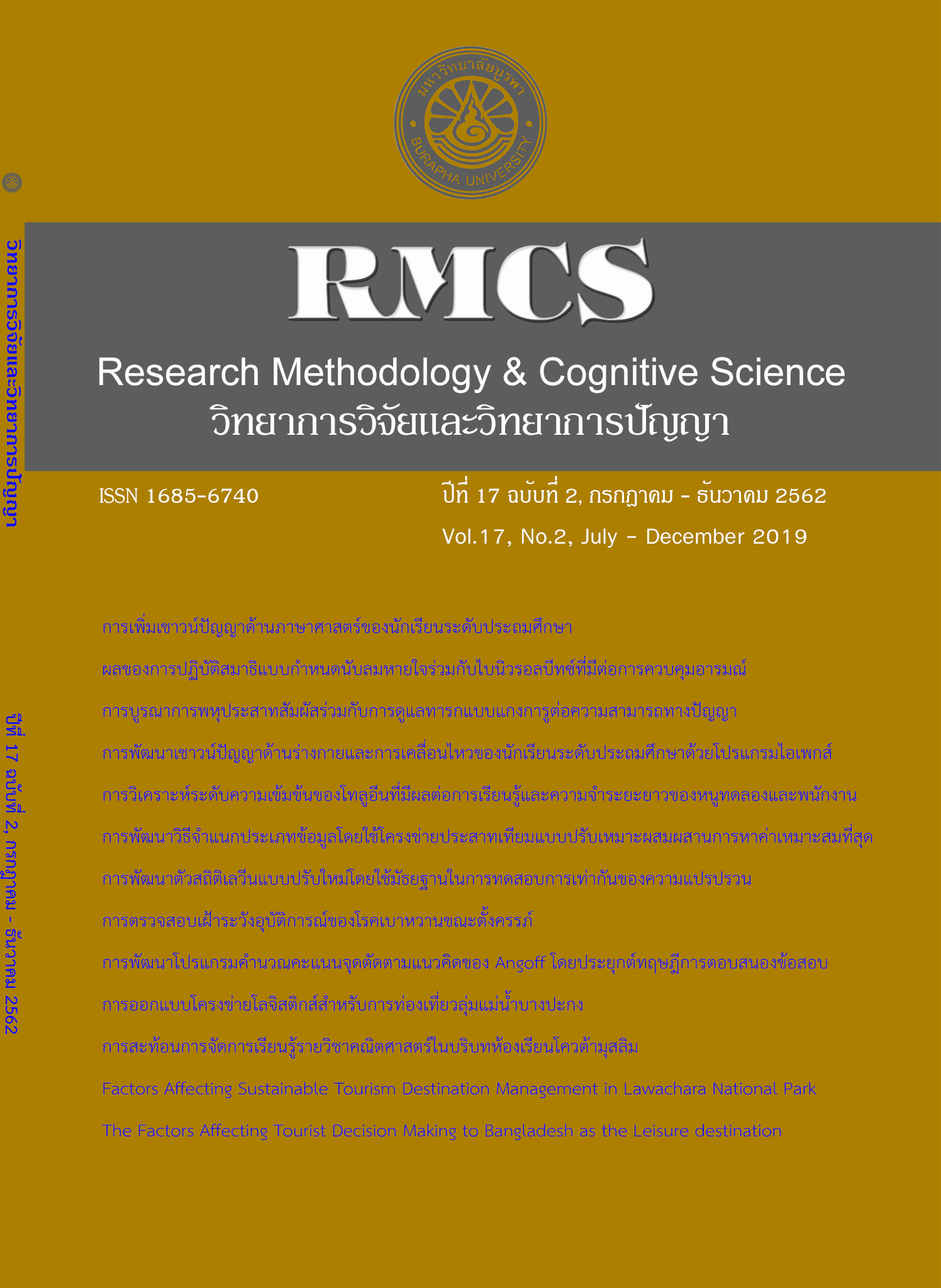Factors Affecting Sustainable Tourism Destination Management in Lawachara National Park, Sylhet, Bangladesh
Main Article Content
Abstract
This study examined the external and internal factors affecting on sustainable tourism destination management (STDM) in Lawachara National Park (LNP) in Moulvi Bazar, Sylhet, Bangladesh.It is one of the main tourist attractions of Sylhet region.The main aim of the study was to gain knowledge to practice STDM in LNP.Objectives were to examine the external and internal factors that are influencing STDM in LNP and to investigate the level of external & internal factors related to STDM in LNP. Conceptual framework and research hypothesizes showed that external factors like political, economic, socio-culture and technological and internal factors like network management organization, information provider and community brand builder had the relationship with sustainable tourism destination management. The data was collected though a requiredquantitative way questionnaire with participation of 380 respondents of domestic tourists. Findings showed that factors like political, socio-culture and network management organization comes as negative and less supportive factors to STDM in LNP. The use ofadvance technology and successful coordination among stakeholderscould bring solution for STDM in LNP. Further research on external and internal factors affecting STDM in LNP would bringmore result in future.
Article Details
References
Briguglio, L. P., Vella, M., & Moncada, S. (2019). Economic growth and the concept of diminishing marginal governance effect. Journal of Economic Studies, 46(4), 888-901.
Butowski, L. (2012). Sustainable tourism: A model approach. In Visions for global tourism industry: Creating and sustaining competitive strategies (1-21). Warszawa: Vistula University in Warsaw Press.
Christopher, P. C., & Shepherd, R. (1998). Tourism: Principles and practice. Harlow: Longman.
Fennell, D., & Weaver, D. (2005). The ecotourium concept and tourism-conservation symbiosis. Journal of Sustainable Tourism, 13(4), 373-390.
Fuchs, M., & Weiermair, K. (2016). Destination benchmarking: An indicator-system’s potential for exploring guest satisfaction. Journal of Travel Research, 42(3), 212-225.
Hopkins III, J. B., Koch, P. L., Ferguson, J. M., & Kalinowski, S. T. (2014). The changing anthropogenic diets of American black bears over the past century in Yosemite National Park. Frontiers in Ecology and the Environment, 12(2), 107-114.
Howie, F. (2003). Managing the tourist destination. London: Continuum.
Jovičić, D. (2016). Key challenges in the implementation of sustainable tourism. Paper presented at the Tourism & Hospitality Industry 2016, Congress Proceedings.
Neto, F. (2002). Sustainable Tourism, Environmental Protection and Natural Resource Management: Paradise on Earth? Paper presented at the International Colloquium on Regional Governance and Sustainable Development in Tourism-driven Economies (pp. 1-17). n.p.
Sharpley, R. (2003). Rural tourism and sustainability: A Critique. In D. Hall, L. Roberts, & M. Mitchell (Eds.), New directions in rural tourism (pp. 38-53). Aldershot: Ashgate.
USAID. (2006). USAID E-Government update: FY 2006. Retrieved from https://www.usaid.gov/sites/default/files/USAID_E-Government_Update_FY2006.pdf
UNEP. (2005). UNEP annual evaluation report 2005. Retrieved from http://wedocs.unep.org/bitstream/handle/20.500.11822/183/UNEP_Anual_Evaluation_Report_2005.pdf?sequence=1&isAllowed=y
World Bank. (2017). World Bank Annual Report 2017. Retrieved fromhttp://pubdocs.worldbank.org/en/908481507403754670/Annual-Report-2017-WBG.pdf
Yamane, T. (1973). Statistics: An introductory analysis (3rd th.). New York: Harper and Row
Zhang, S., & Chan, E. S. (2019). A modernism-based interpretation of sustainable tourism. International Journal of Tourism Research, 1-15. https://doi.org/10.1002/jtr.2330

